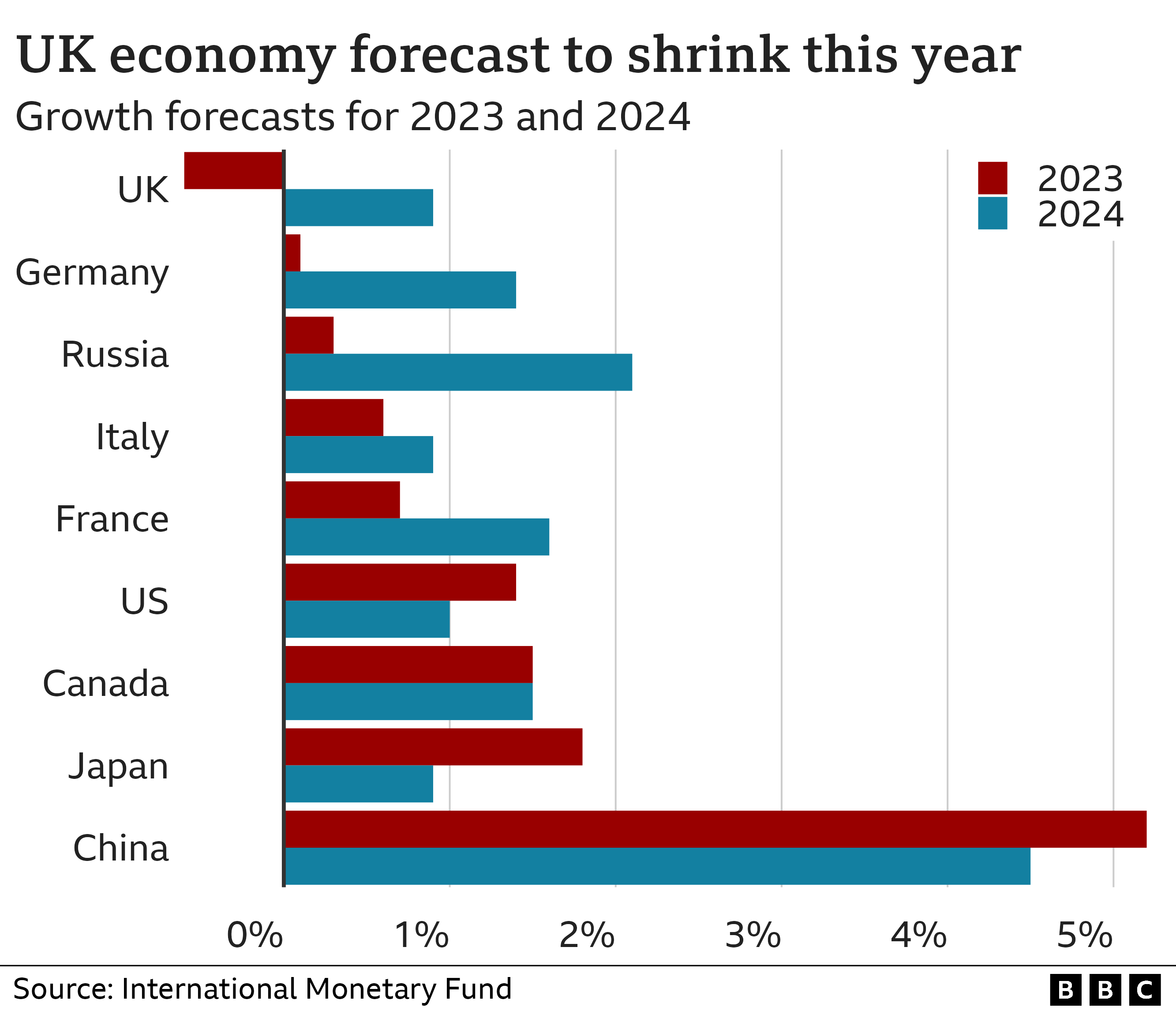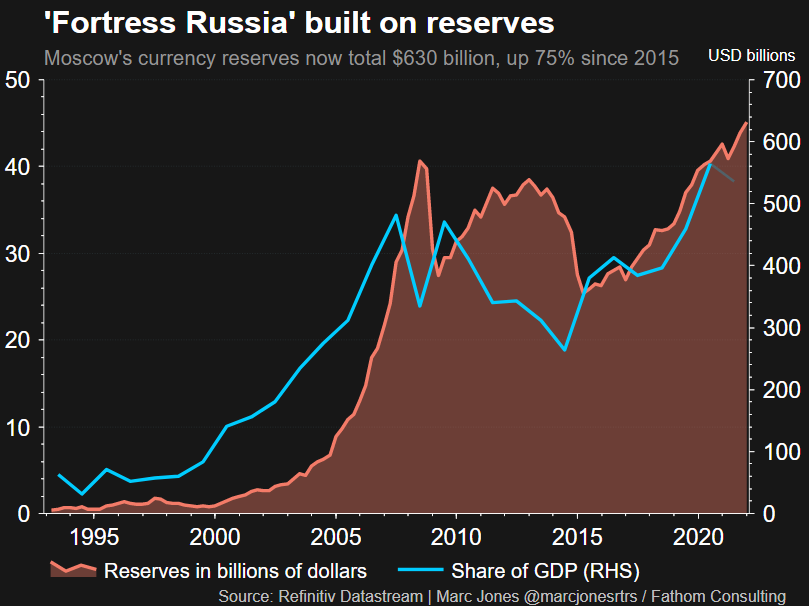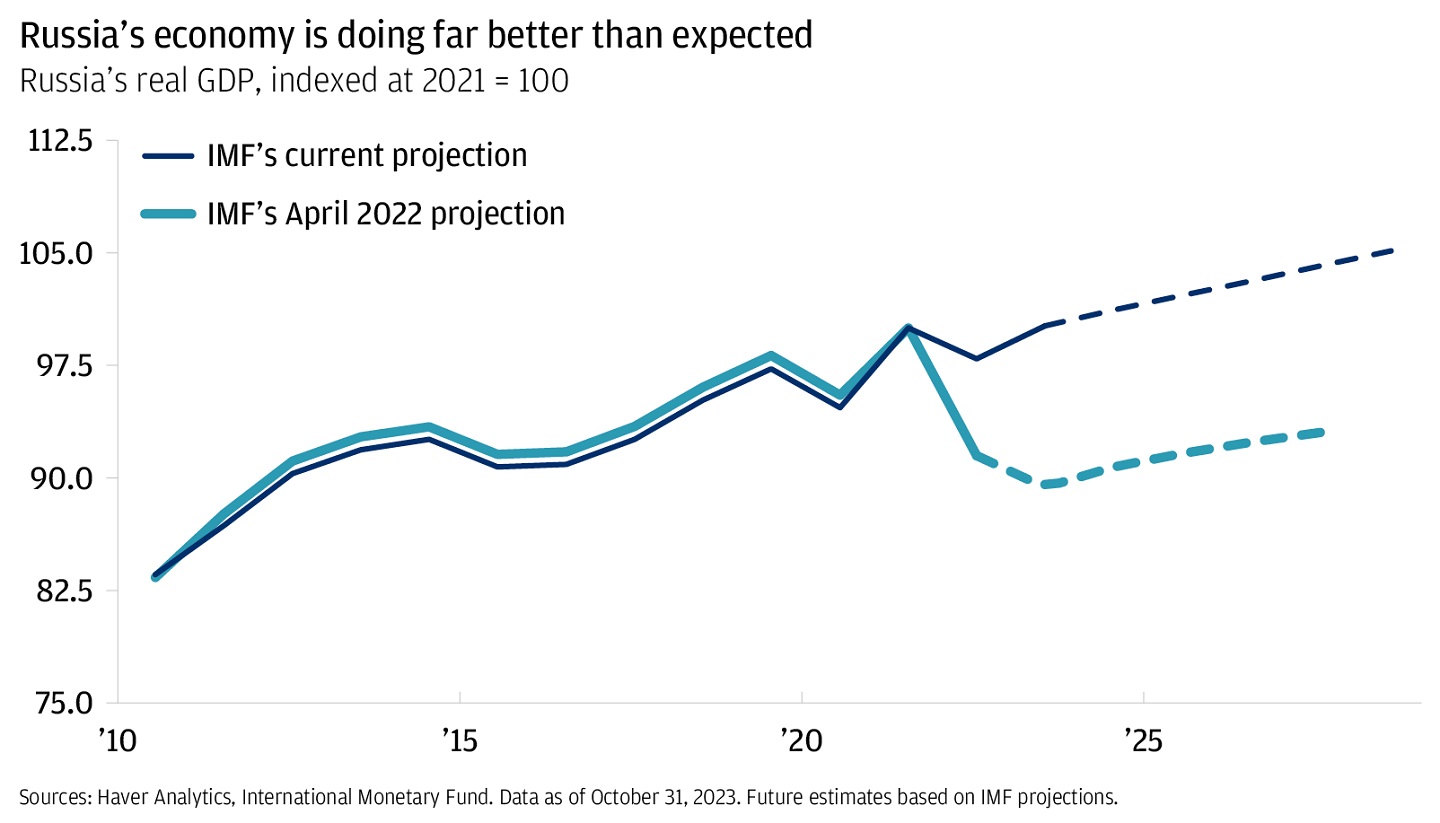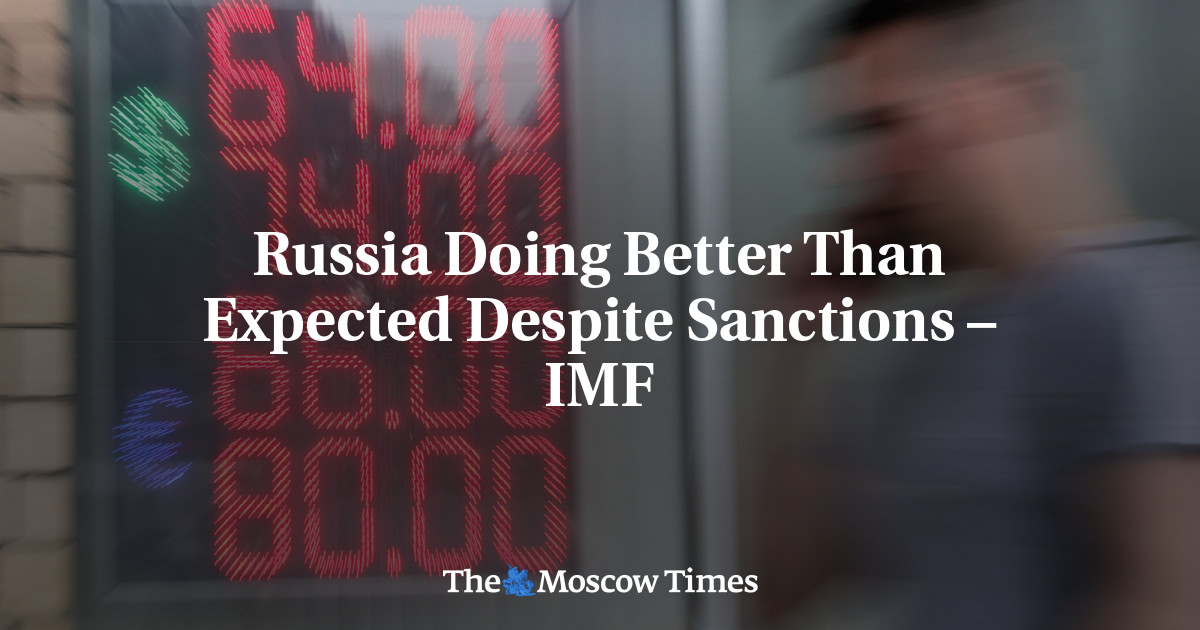
Despite damaging Western sanctions imposed on Moscow in the wake of the invasion of Ukraine, Russia's economy appears to be weathering the storm better than expected as it benefits from high energy prices, the IMF said Tuesday.
The sanctions were meant to sever Russia from the global financial system and choke off funds available to Moscow to finance the war.
After starting the year below $80 a barrel, oil prices spiked to nearly $129 in March, before easing back to a little over $105, while natural gas prices are rising again and approaching their recent peak.
Meanwhile, despite the sanctions, Russia's "domestic demand is also showing some resilience thanks to containment of the effect of the sanctions."
In contrast, Europe is facing the brunt of the fallout given its reliance on Russia for energy, and the situation could worsen dramatically if Moscow cuts off gas exports, and once the European Union imposes a ban on Russian oil delivered by sea starting next year.
The sanctions were meant to sever Russia from the global financial system and choke off funds available to Moscow to finance the war.
- But the International Monetary Fund's latest World Economic Outlook upgraded Russia's GDP estimate for this year by a remarkable 2.5 percentage points, although its economy is still expected to contract by 6%.
After starting the year below $80 a barrel, oil prices spiked to nearly $129 in March, before easing back to a little over $105, while natural gas prices are rising again and approaching their recent peak.
Meanwhile, despite the sanctions, Russia's "domestic demand is also showing some resilience thanks to containment of the effect of the sanctions."
In contrast, Europe is facing the brunt of the fallout given its reliance on Russia for energy, and the situation could worsen dramatically if Moscow cuts off gas exports, and once the European Union imposes a ban on Russian oil delivered by sea starting next year.








No comments:
Post a Comment